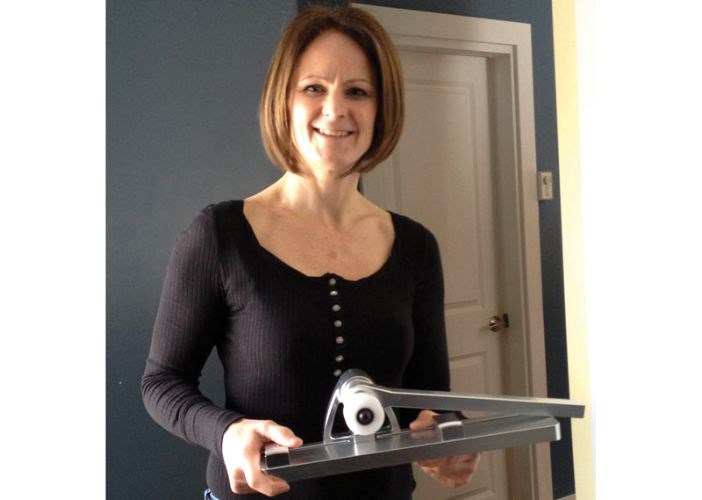Lorelei St. Rose grew up playing ringette and was a figure skater in Vanderhoof but speed skating was never on her list of activities.
That all changed once she started having kids of her own. Her oldest boy Keanan was only three years old when he joined the Prince George Blizzard Speed Skating Club. It wasn't long after her twin sons Ryan and Noah started skating that St. Rose's involvement as a parent volunteer brought her from the stands to ice level as a coach.
In February, after two years as a club coach, St. Rose learned she was among three speed skating coaches in Canada selected for the Women in Coaching Canada Games Apprenticeship program, a joint initiative of the Coaching Association of Canada, the provinces/territories and the Canada Games Council. The apprenticeship program was established in 2005 to facilitate the advancement of women to higher levels of coaching.
With the 2015 Canada Winter Games in Prince George now only nine months away, St. Rose finds herself in a unique position that will enable her to learn more about speed skating and other Winter Games sports from the top club coaches in the country.
"I'll be in the box with the other coaches at Canada Winter Games and leading up that there will be professional development for all the coaches," she said. "All the travel to the different conferences and the training is paid for, so I'll get to go to the [Canada Winter Games] trials with the kids. I'm hoping to do short track and long track, because I haven't had exposure to long track."
St. Rose just returned from Saskatoon, where she attended a conference which involved the other 27 apprentice coaches from various Canada Winter Games sports chosen for the program. Later this spring she will travel to Calgary for a speed skating seminar which will help her achieve her competition-development level in the NCCP program, the minimum requirement to coach at the Canada Games.
"The intent is that a year after the Canada Winter Games is over, we'll have our comp-dev certification," said St. Rose. "You can sit in a classroom and learn all the workbook part of coaching but actually being with the athletes in a competition is a whole other ball game and you need both parts to be an effective coach."
Already armed with a degree in kinesiology from Simon Fraser University, St. Rose worked with Blizzard club mentor Duane Swan and other club coaches to begin learning the practical side of coaching two years ago. She's now a Level 2 coach in the National Coaching Certification Program, certified at the Introduction to Competition level.
St. Rose is vice-chair of the B.C. Speed Skating Association and served as an apprentice coach at the 2014 B.C. Winter Games in Mission. She coaches an intermediate group with the Blizzard. Two of her sons, Keanan, 12, and Ryan, eight, are still skating with the club.
"It's exciting to be a parent and coach in the box when your child is skating, it's a very cool experience," said St. Rose. "It's very rewarding to work with all the kids, not just your own, and that's driving force, because coaching is a lot of work. It takes years and years to become a seasoned coach.
"The skaters have to be ready before they step on the line and there's so much that goes into that, all the training and preparation, all the equipment and nutrition, that happens way before you step into the box. [Having a kinesiology background] helps me a lot because you understand the physiology and the anatomy and how all those pieces work."
The 47-year-old St. Rose also has firsthand experience in what it takes to train to be triathlete. She plans to be in Edmonton on Sept. 1 to participate in her first International Triathlon Union age group world championship, having qualified for the event last year in Kelowna.
"That helps me as a coach because I know what you feels like to step on the line," she said. "It might now be in speed skates but it makes a difference to understand that. You know what it feels like when you're training hard because that's what makes an athlete. You have to be strong and you don't get strong without putting the time in.
"I love training and pushing myself and triathlon is a great sport to do that."



